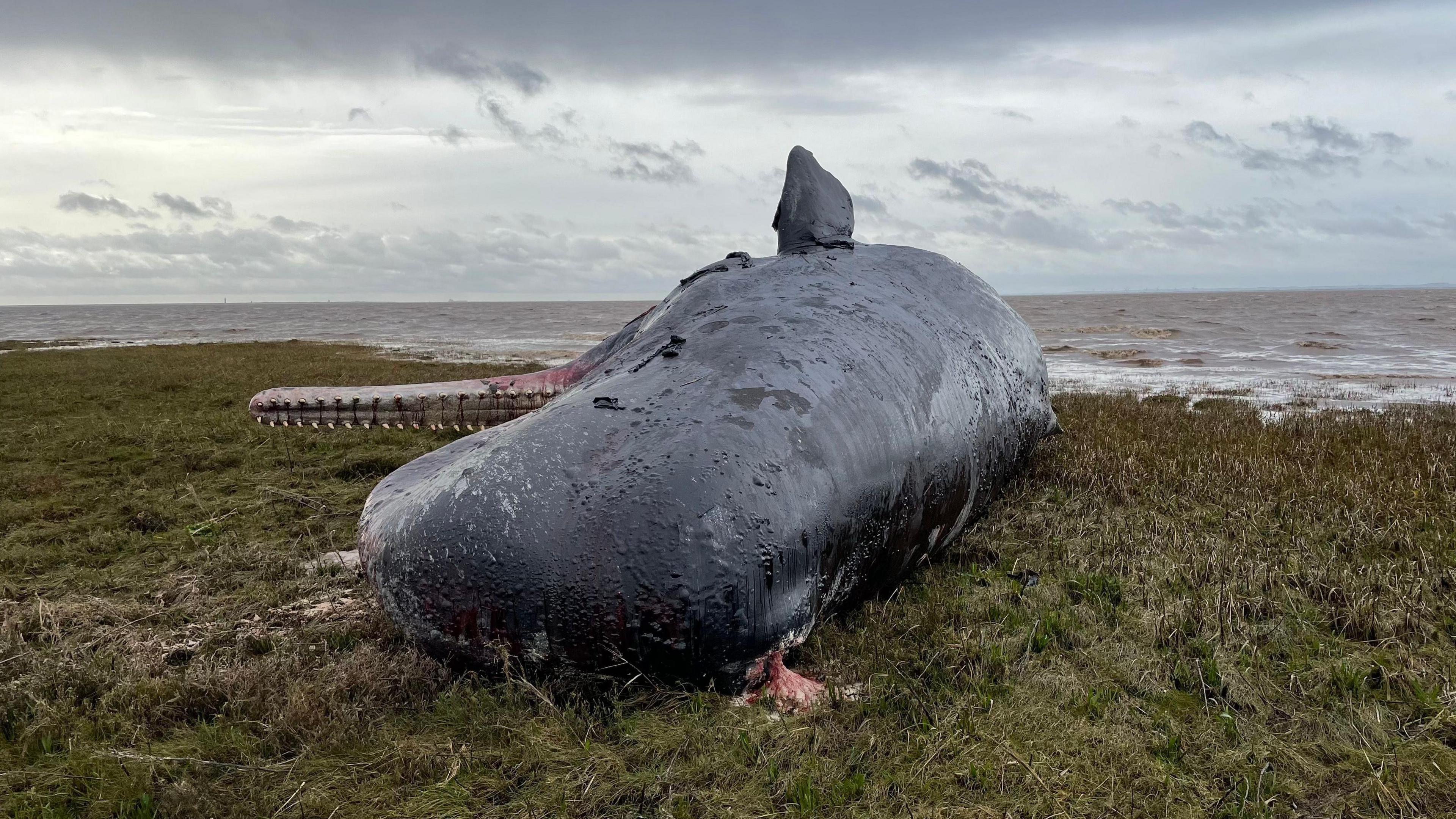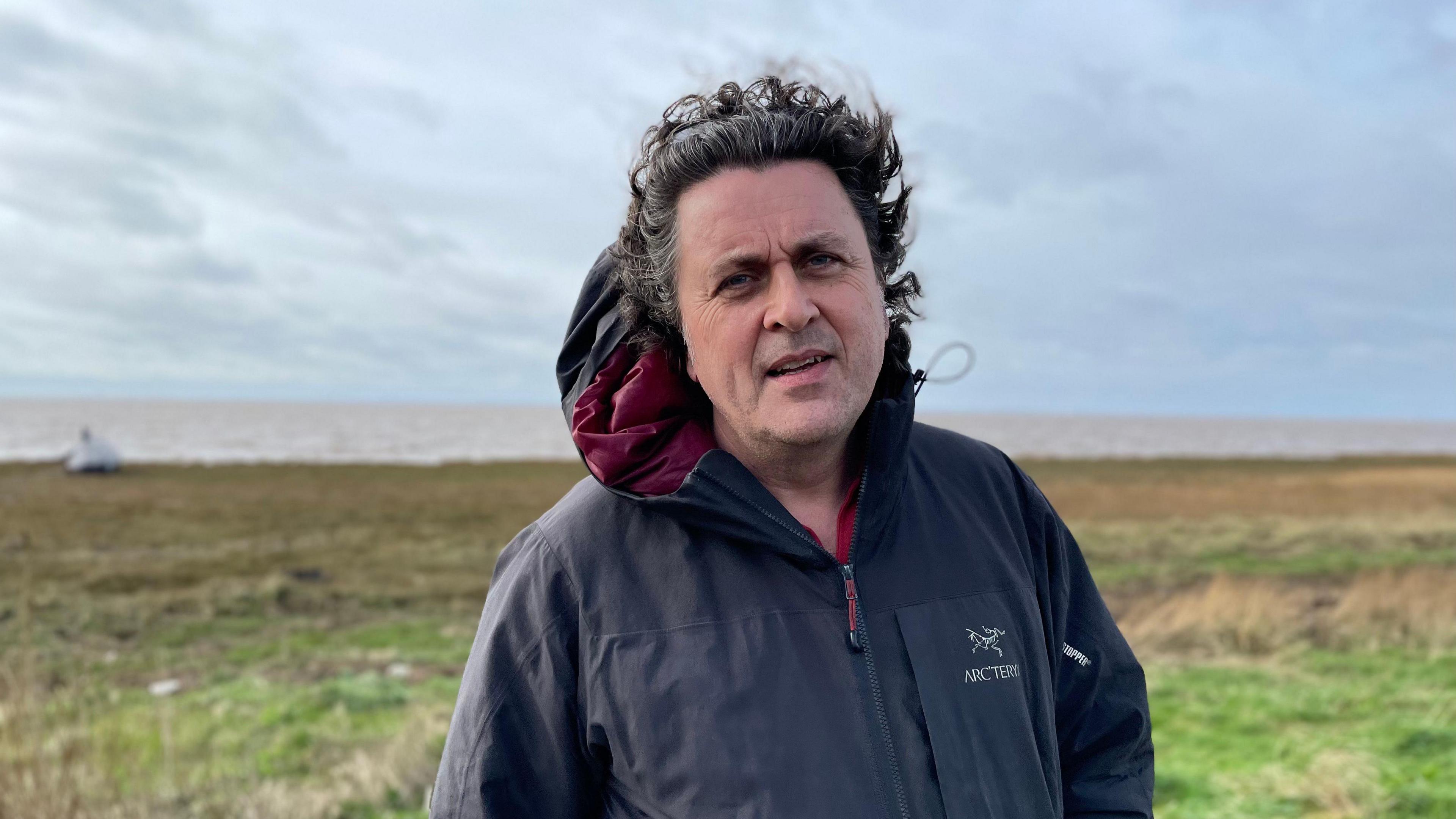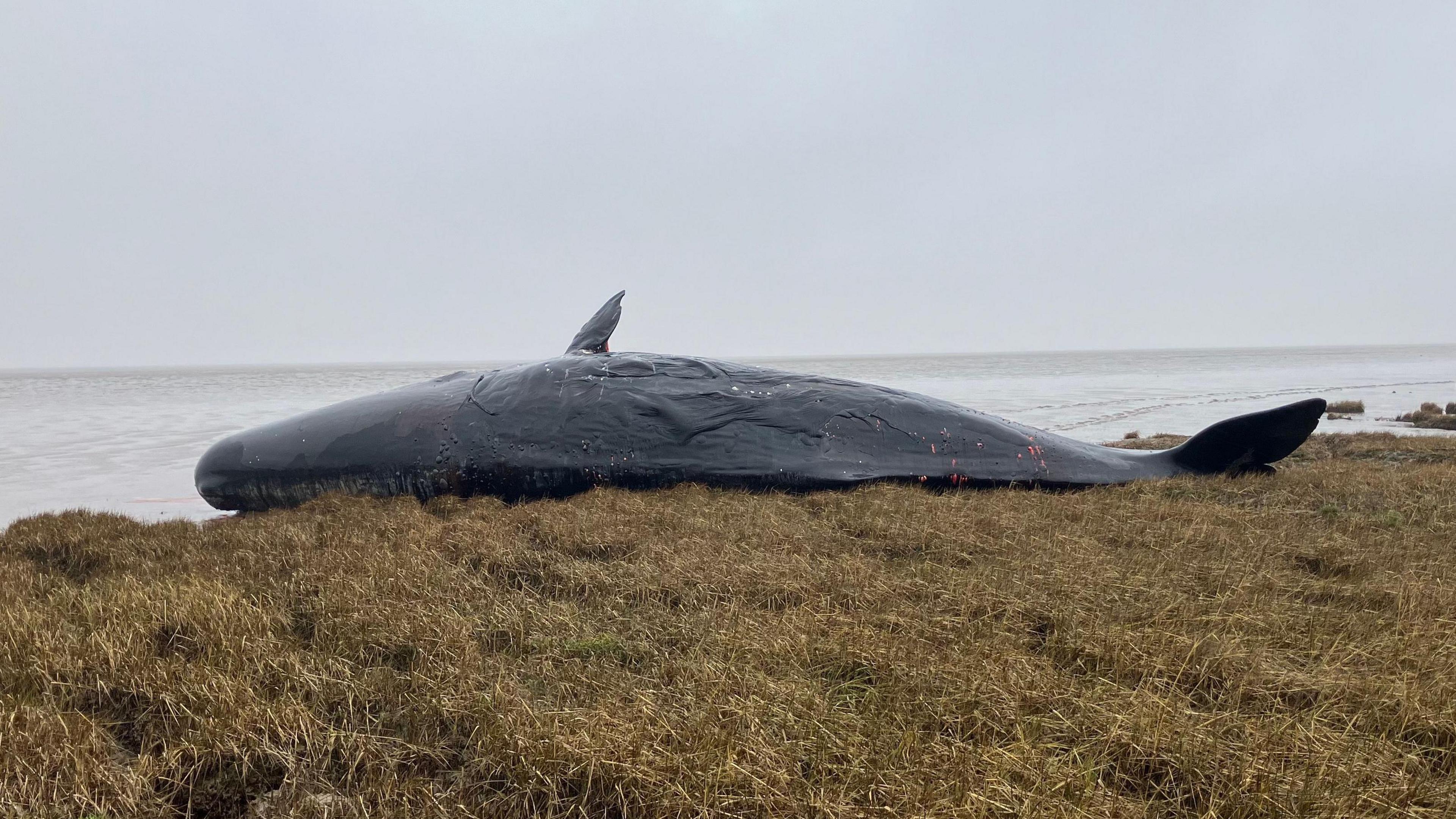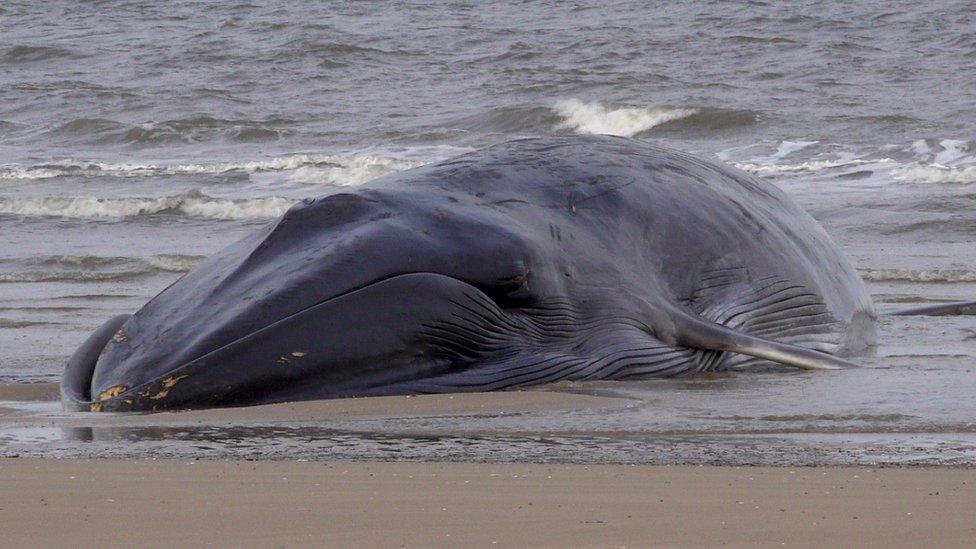London Zoo experts investigate Humber whale deaths

It is thought up to five sperm whales have died in the Humber but only three carcasses have washed up
- Published
Experts from London Zoo are analysing sperm whale carcasses found washed up in the Humber Estuary.
Three were spotted washed up on the shoreline earlier this week although experts believe there have been two further deaths.
The team will take a range of measurements and samples from the bodies, including blood, blubber and teeth for laboratory analysis.
Rob Deaville, from the Cetacean Strandings Investigation Programme, said the evidence gathered will be "detailed" but added the whales have been dead too long to establish a cause of death.
Allow X content?
This article contains content provided by X. We ask for your permission before anything is loaded, as they may be using cookies and other technologies. You may want to read X’s cookie policy, external and privacy policy, external before accepting. To view this content choose ‘accept and continue’.
He said: "There is still a lot of useful info that we are able to collect from these animals. I’ve had lots of requests from people around the world for samples."
Two carcasses were discovered on the north bank near Spurn Point and another was found near Cleethorpes.

Rob Deaville, from the Cetacean Strandings Investigation Programme, said researchers from around the world have asked for samples
The BBC has been told the North Sea is unsuited to the deep diving species and it is not clear why they were in the area.
Mr Deaville said: "There’s that open question about whether it’s due to our activities in some form - whether noise is causing them to enter this area, whether climate change is having an impact - perhaps an impact on the distribution of species out there."
Councils on both sides of the Humber are closely monitoring the carcasses and will be ready to dispose of the bodies if they wash up on a public beach.
Follow BBC East Yorkshire and Lincolnshire on Facebook, external, X (formerly Twitter), external, and Instagram, external. Send your story ideas to eastyorkslincs.news@bbc.co.uk, external.
Related topics
Related internet links
- Published12 March 2024

- Published4 May 2023
